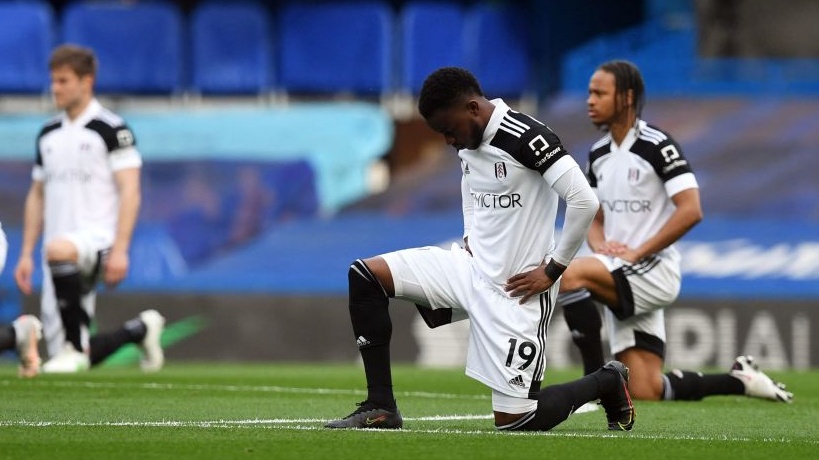The International Olympic Committee (IOC) is prohibiting participants from wearing “Black Lives Matter” apparel at Olympic venues during the Tokyo games.
“A very clear majority of athletes said that they think it’s not appropriate to demonstrate or express their views on the field of play, at the official ceremonies or at the podium,” Kirsty Coventry, the International Olympic Committee’s commission chief, said during a press conference. “So our recommendation is to preserve the podium, field of play and official ceremonies from any kind of protest or demonstrations or acts perceived as such.”
A survey conducted by the IOC last year determined that a substantial number of athletes agreed that it would be inappropriate to express political views. According to the committee, 70% of the 3,500 athletes think they should uphold the traditional ban, known as Rule 50, while on the field and/or during the opening and closing ceremonies, WBTV and the Associated Press reported.
Rule 50 of the Olympic Charter prohibits any "demonstration or political, religious or racial propaganda" at the games, a rule that Black Americans Tommie Smith and John Carlos breached during the 1968 Mexico City, Mexico Olympics. Their act of protest ultimately led to their expulsion from the Olympics.
"It was a polarizing moment because it was seen as an example of Black power radicalism," Doug Hartmann, a University of Minnesota sociologist and the author of Race, Culture, and the Revolt of the Black Athlete: The 1968 Olympic Protests and Their Aftermath
said, Smithsonian Magazine reports. "Mainstream America hated what they did."
The ban also includes barring athletes from taking a knee during the national anthem or raising a fist. Words such as “peace,” “respect,” “solidarity,” “inclusion” and “equality” are acceptable on t-shirts, however. Additionally, during press conferences, interviews or team meetings, athletes will have the opportunity to amplify their voices without penalty.
Should athletes protest under circumstances that prohibit it, they are guaranteed legal protection from the World Players Association and Athleten Deutschland.
“In conclusion, these guidelines have been developed with the aim that each and every one of you can enjoy the experience of the Olympic Games without any divisive disruption,” a statement on the Rule 50 guidelines read.
The athlete-led organization Global Athlete encouraged participants to “not allow outdated ‘sports rules’ to supersede your basic human rights.”
“We envision an Olympics where the athletes are the center of the show, more than the host country or the politics around it or the sponsors,” two-time Olympian and Global Athlete member Noah Hoffman said. “It is this huge spectacle where the athletes are an afterthought.”
According to the WBTV, the penalties for athletes who violate the rules will vary and be reviewed by their respective National Olympic Committee officials on a case-by-case basis.
The Summer Games are set to take place in Tokyo, Japan on July 23.
